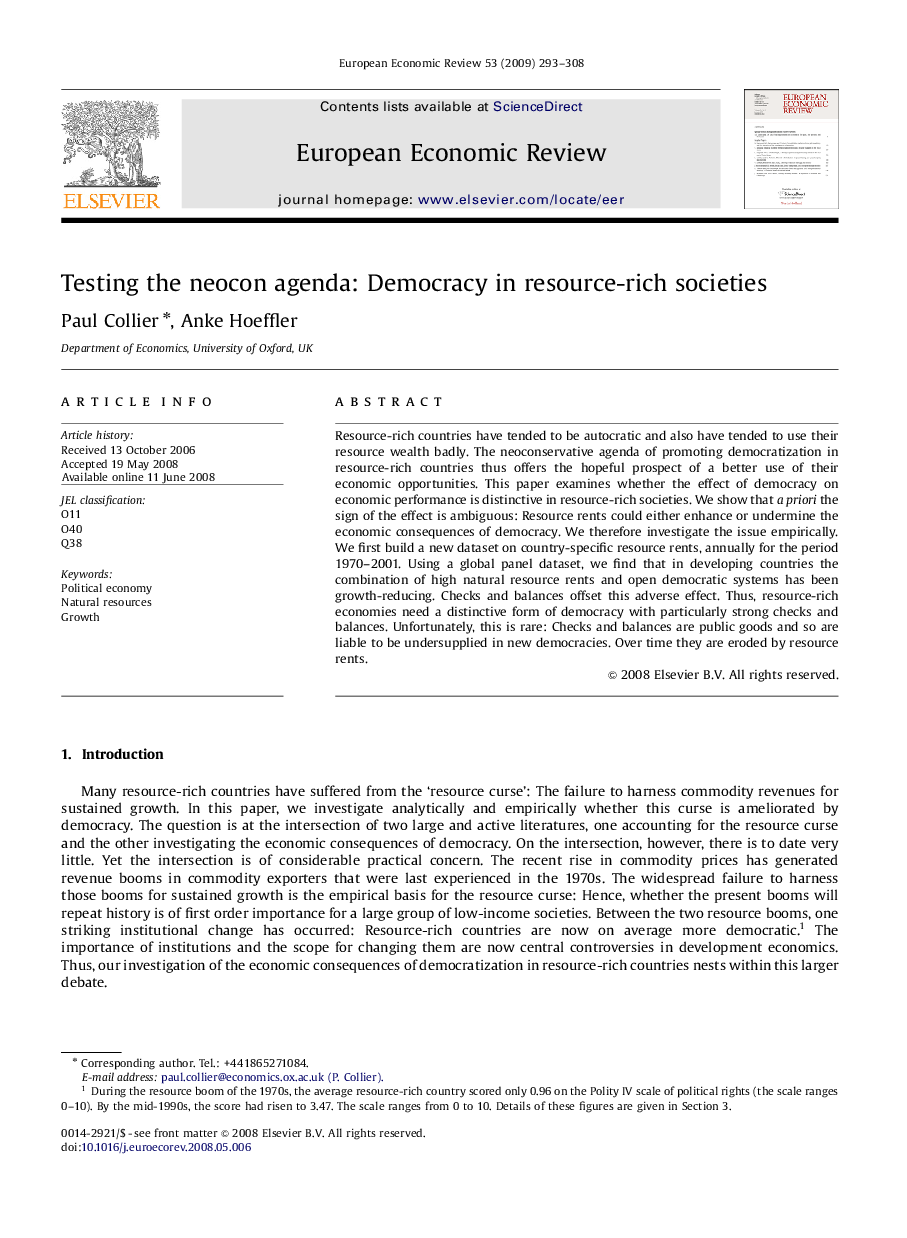| Article ID | Journal | Published Year | Pages | File Type |
|---|---|---|---|---|
| 5067568 | European Economic Review | 2009 | 16 Pages |
Resource-rich countries have tended to be autocratic and also have tended to use their resource wealth badly. The neoconservative agenda of promoting democratization in resource-rich countries thus offers the hopeful prospect of a better use of their economic opportunities. This paper examines whether the effect of democracy on economic performance is distinctive in resource-rich societies. We show that a priori the sign of the effect is ambiguous: Resource rents could either enhance or undermine the economic consequences of democracy. We therefore investigate the issue empirically. We first build a new dataset on country-specific resource rents, annually for the period 1970-2001. Using a global panel dataset, we find that in developing countries the combination of high natural resource rents and open democratic systems has been growth-reducing. Checks and balances offset this adverse effect. Thus, resource-rich economies need a distinctive form of democracy with particularly strong checks and balances. Unfortunately, this is rare: Checks and balances are public goods and so are liable to be undersupplied in new democracies. Over time they are eroded by resource rents.
